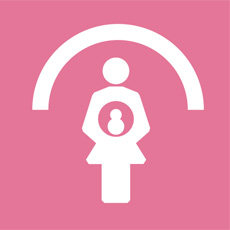Determinants of utilization of antenatal care and skilled birth attendant at delivery in South West Shoa Zone, Ethiopia: a cross sectional study
Ethiopia has one of the highest maternal mortality rates in the world (676 maternal deaths per 100,000 live births) and is one of the ten countries in the world that comprise 58% of global maternal deaths. Problems of coverage are certainly among the factors contributing to this dire mortality rate. Indeed, pregnant women’s failure to

- Author: Wilunda C., Quaglio G., Putoto G., Takahashi R., Calia F., Abebe D., Manenti F., Dalla Riva D., Betrán A.P., Atzori A.
- Published on: Reproductive Health Journal, 2015 August 24, 12(1):74
- Research country: Ethiopia
- READ ARTICLE »
Ethiopia has one of the highest maternal mortality rates in the world (676 maternal deaths per 100,000 live births) and is one of the ten countries in the world that comprise 58% of global maternal deaths. Problems of coverage are certainly among the factors contributing to this dire mortality rate. Indeed, pregnant women’s failure to use the health care services that are available (prenatal visits and deliveries assisted by qualified staff) clearly has a negative outcome; having at least four prenatal visits and giving birth in a facility staffed by qualified health care workers makes it possible, in fact, to cut down on the mortality rate because the latter are able to prevent many of the causes of maternal death.
The study presented here investigated which factors determine whether or not health services (a minimum of four prenatal visits and an assisted delivery) are used by women in the Ethiopian region of Shoa. Wolisso, Goro and Wonchi Districts were analyzed in particular, and 500 women of childbearing age (15 to 49 years old) were interviewed for the study.
45.5% of the women had had at least 4 prenatal visits and 28.6% had given birth with the assistance of a health care professional. The reasons underlying the decision to use the services were primarily both cultural (being aware of the recommended number of prenatal visits and of possible complications associated with non-assisted deliveries, having a positive attitude about motherhood) and economic (well-being). The reasons underlying the non-use of maternal health care services included the age of women and pregnancy outside of marriage. The distance to be travelled in order to reach health care facilities was an additional factor: indeed 42% of the women participating in the study have to walk for more than an hour to get to the nearest health care center.
It is therefore crucial to take actions to make young women aware of the importance of maternal health care, as well as to involve their husbands, families and the entire community.
Pesquisa avançada
Procure os artigos publicados usando os filtros.
Compilações científicas
Artigos, pósteres e apresentações das nossas atividades em África.